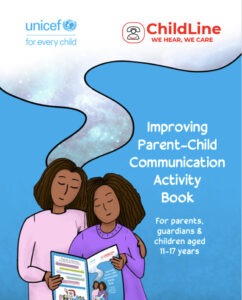Everyone gets angry, however, how an individual chooses to express their anger is important. After the revision of the 2022 COVID-19 regulations, physical schooling in Trinidad and Tobago resumed. However, with the resumption of face-to-face classes, a notable and alarming rise in fights between school children was observed throughout the nation.
With school violence at an all-time high, how can parents and guardians prevent and reduce instances of rage-induced violence? In this article, we provide you with 3 ways to manage physically aggressive behaviour in children.
- Set Consistent and Appropriate Boundaries.
A major key to managing aggressive behaviour in children is through expressing and enforcing consistent and appropriate boundaries for your child/ward. Children are most likely to change their behaviours based on the certainty of a consequence, not the severity of a consequence. As a result, parents and guardians must ensure that children are aware that their behaviour will result in a specific consequence (positive or negative).
- Teach Coping Skills.
As children grow, they will learn and practice new coping skills. However, helping your child/ward find what action can best calm them down from an overly emotional state is important in dealing with aggressing in children and youth. Some coping skills include walking away from the source of anger; breathing techniques; talking to a trusted individual; physical activity/exercise and counting numbers.
- Use Effective Rewards and Consequences.
Parents should be aware of what actions or privileges are effective rewards and consequences. This is important for encouraging positive behaviours and deterring negative ones. Effective rewards may include verbal praise, special meals/snacks, electronic use (TV, Xbox, Phone) or stars/stickers given in exchange for good behaviour.
On the other hand, parents and guardians should withhold or remove certain privileges when children display aggressive behaviour and should ensure that the withholding of these privileges is maintained until a change is observed (through a child expressing that they have reflected on their actions.)
If you are struggling with parenting and want to seek support, you can contact any of the following:
- Families in Action: 628-6333
- Trinidad and Tobago Innovative Parenting Support: parentingtt@gmail.com or 662-8264 / 389-6928 / 385-4968
- Ministry of Social Development and Family Services’ Hotline: 800-1MSD
- The National Family Services Division: 794-7483 or 784-5538
If you child/ward is experiencing difficulties managing their anger and would like support, call ChildLine’s 24/7 helpline at 800-4321 or message our 8 AM to 8 PM live webchat, available on childlinett.org or the My ChildLine App.








